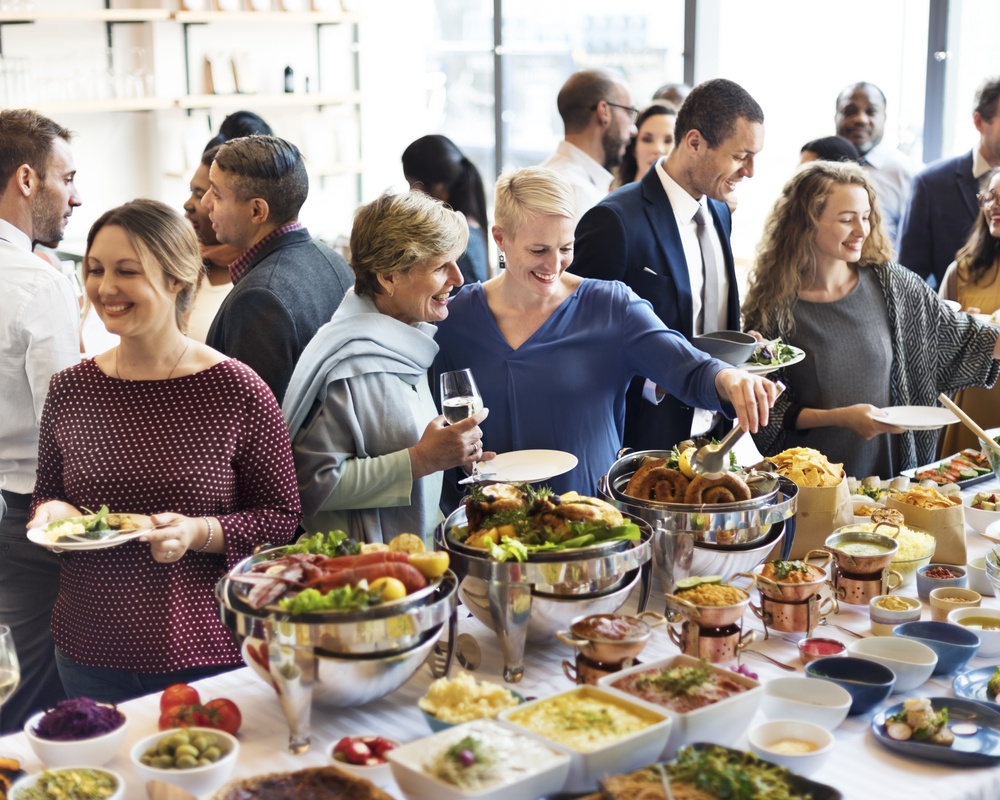Controlling A Food Addiction
 Contributed by
Suresh Joseph
May 3, 2016
Contributed by
Suresh Joseph
May 3, 2016

Many of us overindulge in food, drink and desserts from time to time, especially during special holiday seasons. And, in Singapore, there is certainly no lack of celebrations! Those who suffer from food addiction, however, can find temptation everywhere, at any time, and find it difficult to control.
It leaves them feeling stuffed, on a sugar high and giving in to just one more drink, time and time again.
If you cannot resist stealing one more chocolate, dream for days about long lunches at Raffles Hotel or find yourself overindulging until you feel sick, then chances are you might be suffering from a food addiction.
What Is Food Addiction?
A food addiction is similar to a gambling or drug addiction, except it is usually harder to diagnose because food is always present in our lives. Food addiction is classed as a process addiction and can be identified by the relationship we have with food, the types of food we repeatedly eat and the reasons behind why we eat them.
Junk and sugary foods are the most common types of food involved in an addiction; and cravings, binging or an inability to control how much of these foods you eat are characteristic behaviours.
For example, do you spend a significant part of your day thinking about food or do you go out of your way to buy junk food? This is common behaviour of people suffering from food addictions, but can be ignored for years or simply labeled as actions of someone with a ‘sweet tooth’. However, if you switched the junk food for alcohol or drugs, it would immediately be apparent that someone was an addict.
Scientific American magazine links obesity with addiction, because overeating stimulates the same brain circuits as drug use. The article cites studies that show “foods rich in fat and sugar can supercharge the brain’s reward system, which can overpower the brain’s ability to tell an individual to stop eating”.
When the reward system is being activated, our body releases pleasure neurotransmitters, such as dopamine. Some of us get addicted to this good feeling and increasingly seek out certain foods that give us these good vibes, with negative feelings of guilt or deprivation accompanying the cravings. Often it is only when the addiction affects our health or weight that we address the problems associated with food, but even people at a healthy weight can suffer from a food addiction.
Am I Addicted To Food?
Because food is essential to our daily lives it can be harder to recognise a food addiction compared to a gambling or an alcohol one. If you suspect that you might have a problem, then the following questions can help you figure out if you are addicted:
- Do you often end up eating more than you planned (especially junk food)?
- Do you eat even when you are not hungry?
- Do you often feel like you’ve eaten too much, or feel sick or stuffed?
- Do you ever hide or lie about what you eat?
- Do your eating habits interfere with work, social situations or relationships?
- Do you tackle negative emotions, such as sadness by overindulging in certain foods?
If you answered ‘yes’ to any of these questions then you might be suffering from a food addiction.
What Can I Do About It?
Singapore’s Health Promotion Board has been active in the last few years in trying to combat obesity by promoting healthy eating and exercise, after research revealed that one in nine Singaporeans were obese. But this does little to tackle the real reasons behind food addiction.
Food addiction is an eating behavioural disorder whereby one becomes addicted to the feelings associated with certain foods. Recognising you have a problem is the first step towards recovery. Taking the time to read up about food addictions and how to deal with them is also useful in reducing the problem.

How Can I Avoid The Pitfalls?
Stress at work and in relationships can cause food addicts to turn to food for comfort. There are also many other occasions that test our willpower and invite us to overindulge in our favourite foods, and this can lead to feelings of guilt, irritability and negative self-worth. If you think you may be suffering from a food addiction, here are some ways to overcome the pitfalls:
1. Recognise Your Feelings
Try to recognise what feelings make you reach for food. Is stress, boredom or loneliness making you reach for comfort foods, or are you eating because you are distracted or uncomfortable in a social situation? Recognising the ‘triggers’ that make you seek comfort in food is the first step to overcoming a food addiction.
2. Eat Healthily
It is hard to overindulge on carrots or salad, so try to eat as healthily as possible. Plan your meals ahead of time and make sure you have healthy snacks at home. Remove temptations from your home and take fruit to snack on at work.
3. Don’t Be Too Hard On Yourself
Almost everyone overindulges from time to time, be it on food, drink or shopping, but try not to be too hard on yourself. Set up a system where if you binge, you work it off the next day by going for a run (or even better, run before if you feel a binge coming on).
4. Seek Help
There is no shame in asking for help, and often it is the fastest way to address the problem. Because food is an essential part of our lives, it can sometimes be the hardest addiction to control. Seeking advice from a professional can help untangle the emotions and motivations behind your impulses and can help you redefine your relationship with food.
Visit the The Cabin Singapore page to find out more about Suresh's work.











Sorry, the comment form is closed at this time.